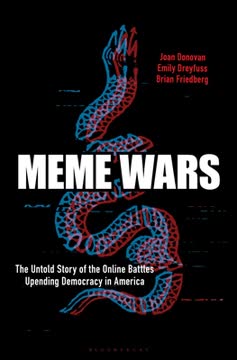Key Takeaways
1. Meme Wars are culture wars accelerated by the internet.
Meme wars are culture wars, accelerated and intensified because of the infrastructure and incentives of the internet, which trades outrage and extremity as currency, rewards speed and scale, and flattens the experience of the world into a never-ending scroll of images and words, a morass capable of swallowing patience, kindness, and understanding.
Culture wars amplified. Meme wars are not new but are culture wars on steroids, fueled by the internet's infrastructure. The internet's design promotes outrage and extremity, prioritizing speed and scale over nuance. This creates a never-ending cycle of images and words that can erode patience and understanding.
Social media's role. Social media platforms amplify culture wars by connecting like-minded individuals and enabling the rapid dissemination of ideas. Algorithms prioritize emotionally stirring content, creating echo chambers and reinforcing existing beliefs. This makes it easier for fringe ideas to gain traction and influence mainstream culture.
Breitbart's influence. Andrew Breitbart recognized that politics is "downstream of culture," meaning that shaping culture can shape politics. Social media has made it easier to "hack" culture, allowing meme warriors to influence public opinion and mobilize support for their causes.
2. Occupy Wall Street inspired the far-right's online activism.
We start our book with the story of Occupy and the ways it inspired the far-right fringe, teaching people like Breitbart and Steve Bannon, his friend and predecessor at far-right alternative news site Breitbart News Network, how to use the participatory nature of the web and the free speech free-for-all of early social media companies to launch culture wars that drew blood.
Occupy's impact. Occupy Wall Street, a left-wing protest movement against economic inequality, inadvertently provided a blueprint for the far-right's online activism. Figures like Breitbart and Bannon learned how to use the internet's participatory nature to mobilize supporters and launch culture wars.
Tea Party's rise. The Tea Party movement, a conservative response to Obama's policies, also demonstrated the power of online organizing. Tea Party operatives trained older conservatives to use social media to drown out liberal voices and promote their agenda.
Alternative media. Both Occupy and the Tea Party relied on alternative media to bypass mainstream outlets and reach their target audiences. This created a parallel media ecosystem that amplified fringe ideas and challenged the establishment narrative.
3. The death of Trayvon Martin fueled white supremacist recruitment.
The death of Trayvon Martin was a flash point for race relations in the United States, red-pilling a swath of extremist, far-right, and center-right conservatives that would later be lumped together by the press, and by influencers with an agenda, under the term alt-right.
Black-on-white crime. The death of Trayvon Martin, a Black teenager shot by a white neighborhood watchman, became a rallying point for white supremacists. They used the case to promote the idea of "black-on-white crime," a misrepresented statistic used to justify racist beliefs.
Dylann Roof's radicalization. Dylann Roof, the white supremacist who murdered nine Black churchgoers in Charleston, South Carolina, cited the Trayvon Martin case as the beginning of his radicalization. He searched for information about "black-on-white crime" online and was drawn into white supremacist forums.
Hate facts. White supremacists use "hate facts," misrepresented crime statistics and racist pseudoscience, to recruit new members. These "facts" are often presented as forbidden knowledge, enticing people to delve deeper into extremist ideologies.
4. Gamergate weaponized misogyny and antimedia sentiment.
In these wars, the weapons were memes, slogans, ideas; the tactics were internet-enabled threats like swarms, doxes, brigades, disinformation, and media-manipulation campaigns; and the strategy of the warriors was to move their influence from the wires (the internet) to the weeds (the real world) by trading fringe ideas up the partisan media ecosystem and into mainstream culture.
Zoe Quinn's harassment. Gamergate, a controversy surrounding video game developer Zoe Quinn, became a breeding ground for misogyny and antimedia sentiment. Quinn was targeted with harassment and doxing after her ex-boyfriend accused her of cheating to get positive reviews for her game.
"Ethics in gaming journalism." Gamergaters claimed to be concerned about ethics in gaming journalism, but their actions were primarily aimed at silencing women and minorities in the industry. They used online harassment and coordinated attacks to intimidate critics and promote their agenda.
Milo Yiannopoulos's role. Milo Yiannopoulos, a Breitbart writer, amplified Gamergate and positioned it as a fight against "social justice warriors" and the mainstream media. He used the controversy to build his own platform and promote his brand of right-wing populism.
5. Trump's troll-like persona resonated with online subcultures.
He embodied insurgency with every aspect of his behavior. He had embraced these communities during his first run. He retweeted them with gusto despite the press calling him out for it. He refused to disavow them. He said they were very nice people.
Trump as a meme. Donald Trump's behavior and rhetoric resonated with online subcultures, particularly those who felt alienated from mainstream society. He embraced these communities, retweeted their content, and refused to disavow them, earning their loyalty and support.
Antiestablishment appeal. Trump's antiestablishment stance appealed to people who distrusted the media, government, and other institutions. He positioned himself as an outsider fighting against a corrupt system, a message that resonated with many online communities.
"Let Trump be Trump." Trump's campaign embraced his troll-like persona, allowing him to speak his mind and generate controversy. This approach attracted attention and mobilized his base, even as it alienated some mainstream voters.
6. QAnon exploited distrust in institutions and promised a "Great Awakening."
These are people with varying different political ideologies, all of which are reactionary, most of whose politics can be broadly categorized as libertarian, paleoconservative, or ethnonationalist.
Conspiracy theory. QAnon, a conspiracy theory that emerged in 2017, claimed that a "deep state" cabal of Satan-worshipping pedophiles was plotting against Trump. The movement gained a large following online, attracting people who distrusted the government and mainstream media.
"Do your own research." QAnon encouraged followers to "do their own research" and uncover the "truth" about the world. This participatory approach fostered a sense of community and empowered individuals to believe they were part of a secret mission.
"The Storm." QAnon promised a "Great Awakening," a day of reckoning when Trump would expose and punish the cabal. This promise of future justice kept followers engaged and motivated, even as Q's predictions repeatedly failed to materialize.
7. The January 6th insurrection was a culmination of online radicalization.
It was a meme war that spilled into the streets of Washington, D.C., that day in January 2021. It was a decade of meme wars that radicalized people, that helped them forge their identities and find their communities, and it was a president and his political operatives who understand the power of meme wars who were able to send a tweet that drafted thousands into a battle against democracy itself.
"Stop the Steal." The January 6th insurrection, an attack on the U.S. Capitol, was the culmination of years of online radicalization. The central idea animating the insurrection was the memetic slogan "#StopTheSteal," which falsely claimed that Trump had been denied his rightful victory in the 2020 election.
Trump's role. Trump played a significant role in inciting the violence, telling his supporters to "fight like hell" and march to the Capitol. Many of the rioters had been radicalized by online meme wars and believed they were acting on Trump's orders.
Consequences. The insurrection resulted in multiple deaths, arrests, and a deep division in American society. It also highlighted the power of online subcultures to influence real-world events and the dangers of political disinformation.
8. The internet's architecture enables the spread of fringe ideas.
The technology of any age in human history shapes the culture of that time.
Anonymity and boldness. The internet's anonymity allows people to express themselves more freely, but also distances them from the consequences of their words. This can lead to the spread of hate speech and disinformation.
Democratization of publishing. Blogs and social media have democratized the publication of information, allowing anyone to share their ideas with a global audience. This has created a more diverse media landscape, but also made it harder to distinguish between credible sources and misinformation.
Algorithmic echo chambers. Social media algorithms create personalized information ecosystems, where users are primarily exposed to content that confirms their existing beliefs. This can lead to echo chambers and reinforce political polarization.
9. Red pills and rabbit holes entice users into extremist subcultures.
One of the key ways that meme warriors suck people down into these rabbit holes is through the artful use of red pills, which they scatter across the open internet, waiting for you.
"Red pill" metaphor. The "red pill," a reference to the film The Matrix, is used to describe a sudden realization that changes someone's worldview. Meme warriors use red pills to challenge the status quo and entice people to question their assumptions.
Provocative ideas. Red pills often take the form of provocative ideas that challenge the liberal consensus. These ideas are shared on social media, in comment sections, and on radio shows, with the hope of sparking curiosity and leading people down the rabbit hole.
Disturbing or taboo content. Rabbit holes are paths that memes can entice you down as you follow them from website to website, particularly ones that are disturbing or taboo. These paths often lead to extremist subcultures and can be difficult to escape.
10. The red-pilled right unites disparate reactionary factions.
We chose the term “red-pilled right” carefully, because it does not ascribe any more commonality between these groups than they have.
Opposition to the establishment. The "red-pilled right" is an umbrella term for a collection of reactionary factions united by their opposition to the establishment. These factions include the alt-right, white nationalists, fascists, incels, and conspiracy theorists.
Varying ideologies. The red-pilled right encompasses a range of political ideologies, including libertarianism, paleoconservatism, and ethnonationalism. These groups often disagree on specific issues, but they share a common distrust of mainstream institutions.
Hatred of the media. The red-pilled right views the mainstream media as a guardian and apologist of the establishment. They see the media as the enemy and prefer to get their news from alternative sources and social networks.
Last updated:
FAQ
1. What is Meme Wars: The Untold Story of the Online Battles Upending Democracy in America by Joan Donovan about?
- Explores meme-driven political warfare: The book investigates how internet memes evolved from simple jokes to powerful tools that shape American politics, culture, and democracy.
- Focuses on online subcultures: It examines the rise of fringe communities on platforms like 4chan and Reddit, and how their meme tactics influenced real-world events, including elections and protests.
- Connects digital and real-world impact: The narrative traces the journey from online activity (“the wires”) to offline mobilization (“the weeds”), culminating in events like the January 6 Capitol insurrection.
- Interdisciplinary research: Written by a team from Harvard’s Shorenstein Center, the book blends sociology, ethnography, and journalism to analyze meme culture’s effects on democracy.
2. Why should I read Meme Wars by Joan Donovan?
- Understand modern political influence: The book reveals how memes and online culture have reshaped political discourse, activism, and the mechanisms behind democratic challenges in the U.S.
- Gain insight into hidden online worlds: Readers are introduced to obscure internet subcultures that have had outsized influence on mainstream politics, such as the alt-right, manosphere, and conspiracy communities.
- Learn about media manipulation: The book provides frameworks for recognizing and countering disinformation, including the “four Rs” of media manipulation: repetition, redundancy, responsiveness, and reinforcement.
- Enhance media literacy: It encourages critical thinking about meme-driven content and its role in shaping public opinion and political outcomes.
3. What are the key takeaways from Meme Wars by Joan Donovan?
- Memes as cultural weapons: Memes act as “selfish objects” that rapidly replicate ideas, mobilize people, and define in-groups and enemies, often regardless of the harm they cause.
- Social media accelerates polarization: Platforms amplify polarizing content, creating echo chambers and making it difficult to distinguish truth from misinformation.
- Meme wars have real consequences: Online meme battles have led to significant offline events, including protests, violence, and the Capitol insurrection, but rarely result in meaningful policy change.
- Systemic solutions needed: The authors argue that only public-interest internet protocols and political will can address the challenges posed by meme wars, not just algorithm tweaks or free speech laws.
4. How did meme culture and online communities influence the 2016 U.S. presidential election according to Meme Wars?
- Alt-right meme dominance: Pro-Trump online communities mastered meme warfare, using memes like “basket of deplorables” and #HillarysHealth to shape public perception and energize Trump’s base.
- Meme magic and mobilization: Supporters believed in “meme magic,” the idea that online activity could influence real-world outcomes, and used memes to coordinate attacks and discredit opponents.
- Blurring news and entertainment: Memes forced mainstream media to cover meme-driven stories, while the Clinton campaign struggled to counter these narratives.
- Strategic disinformation: The campaign saw unprecedented use of disinformation, hacking, and targeted social media advertising, with meme warfare central to shaping voter perceptions.
5. What are the most important concepts and definitions in Meme Wars by Joan Donovan?
- Meme and meme wars: A meme is a piece of media remixed and shared to convey meaning and signal group membership; meme wars are battles fought online using memes, slogans, and disinformation.
- Red-pilled right: Refers to far-right factions united by opposition to the establishment, using the “red pill” metaphor from The Matrix to signify awakening to hidden truths.
- Four Rs of media manipulation: Repetition, redundancy, responsiveness, and reinforcement are tactics that amplify memes and disinformation online.
- Red pills: Memes or ideas that claim to reveal hidden truths, often leading to radicalization and deeper involvement in meme wars.
6. How did the Occupy Wall Street movement shape the meme wars described in Meme Wars?
- Digital activism origins: Occupy Wall Street pioneered the use of social media and memes (#OccupyWallStreet, “We Are the 99 Percent”) to organize decentralized protests.
- Open-source movement dynamics: Its leaderless, open nature allowed for broad participation but also made it vulnerable to co-option by right-wing actors who learned from its tactics.
- Legacy for future meme wars: Occupy taught both left and right how to use memes and social media to set media agendas, create viral content, and build communities, laying the groundwork for more aggressive meme wars.
7. What role did white supremacist and alt-right internet communities play in the rise of meme wars, according to Meme Wars?
- Radicalization through hate facts: Sites like Stormfront and 4chan’s /pol/ used pseudoscientific “hate facts” and memes to radicalize individuals and spread racist ideologies.
- Human Biodiversity (HBD) meme: The alt-right used HBD to legitimize scientific racism, recruiting new members with pseudo-academic language.
- Alternative media ecosystem: These communities blended shock humor, conspiracy theories, and fascist ideology, enabling the spread of extremist content and coordinated propaganda campaigns.
8. How did the manosphere and Gamergate contribute to the culture wars and meme wars in Meme Wars?
- Manosphere origins: Online communities like MRAs, PUAs, and incels fostered antifeminist and gender-essentialist views, fueling toxic masculinity and violent acts.
- Gamergate as a meme war: Gamergate used coordinated harassment, doxing, and media manipulation to fight perceived feminist influence in gaming, demonstrating the power of decentralized online communities.
- Media and meme tactics: Hashtags like #Gamergate and viral memes allowed these groups to influence public discourse and mobilize supporters for broader political causes.
9. How does Meme Wars by Joan Donovan explain the emergence and influence of QAnon?
- Origins and narrative: QAnon began with cryptic posts on 4chan, claiming insider knowledge of a secret war between Trump and a cabal of elites, blending old conspiracy theories with new digital culture.
- Growth and spread: Influencers and platforms like YouTube helped translate Q’s messages, creating a participatory culture of “digital soldiers” who engaged in collective research and meme creation.
- Political and social impact: QAnon became a powerful force in right-wing media, influencing Trump supporters, fueling distrust in institutions, and contributing to the January 6 Capitol attack.
10. What is the significance of the "Stop the Steal" meme war and the 2020 election in Meme Wars?
- Stop the Steal as a meme campaign: The phrase was revived in 2020 to contest election results, mobilizing a broad coalition of far-right groups, QAnon adherents, and Trump supporters.
- Legal and media strategies: Trump’s team filed lawsuits and promoted memes like “release the Kraken,” while media companies responded by banning related content and accounts.
- Culmination in January 6: The meme war’s climax was the Capitol insurrection, incited by online coordination and meme-driven beliefs, resulting in mass arrests and deplatforming.
- Long-term consequences: The campaign deepened polarization and eroded trust in electoral processes, destabilizing democratic norms.
11. How does Meme Wars describe the January 6 Capitol insurrection and its connection to meme culture?
- Insurrection as meme war culmination: January 6 is framed as the result of a decade of online meme warfare that radicalized and mobilized diverse groups.
- Role of key figures and groups: Trump’s speech and the actions of groups like the Proud Boys and Oath Keepers were central, with influencers livestreaming the chaos.
- Media documentation: The event was extensively documented through livestreams and social media, making it “the most well-documented crime in human history.”
- Impact on democracy: The insurrection exposed vulnerabilities in American democracy and highlighted the dangers of meme-driven radicalization.
12. What are some of the most important memes, slogans, and symbols discussed in Meme Wars by Joan Donovan, and what do they signify?
- #StopTheSteal: A rallying cry for the belief that the 2020 election was stolen, uniting the MAGA community and fueling the Capitol insurrection.
- Red pill: Signifies awakening to a hidden truth, used by far-right groups to describe ideological conversion and recruitment.
- Pepe the Frog: A comic character co-opted by the alt-right as a hate symbol and mascot for their movement.
- Cuckservative and Based: “Cuckservative” mocks mainstream Republicans as weak, while “based” praises unapologetic, often reactionary opinions within right-wing communities.
- Other symbols: Figures like the McCloskeys and Kyle Rittenhouse became meme icons representing white backlash to BLM, illustrating how individuals and events are weaponized in meme warfare.
Review Summary
Meme Wars explores how internet memes and online culture have influenced American politics from 2011-2021. Reviews praise its comprehensive timeline and analysis of alt-right movements, but some criticize its loose definition of memes and repetitive content. Readers found it informative yet disturbing, highlighting the power of social media in shaping public opinion. The book traces the evolution of online communities and their real-world impact, culminating in the January 6th insurrection. While some reviewers felt overwhelmed by the detail, most agreed it offers valuable insights into recent political events.
Similar Books
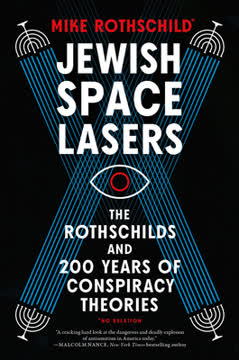

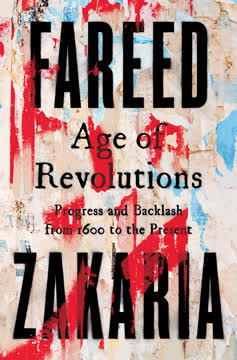
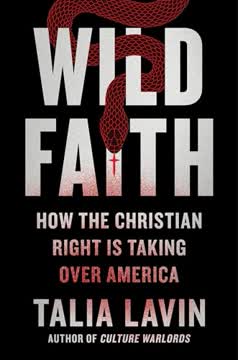
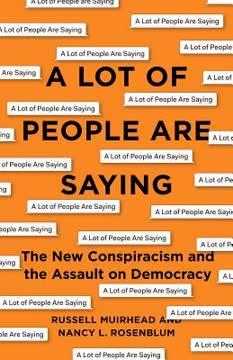
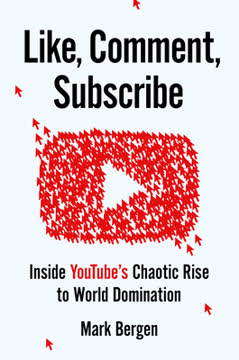
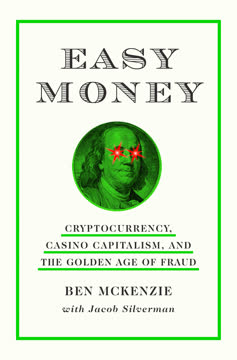
Download PDF
Download EPUB
.epub digital book format is ideal for reading ebooks on phones, tablets, and e-readers.
